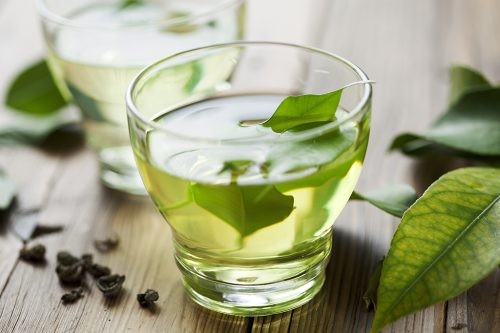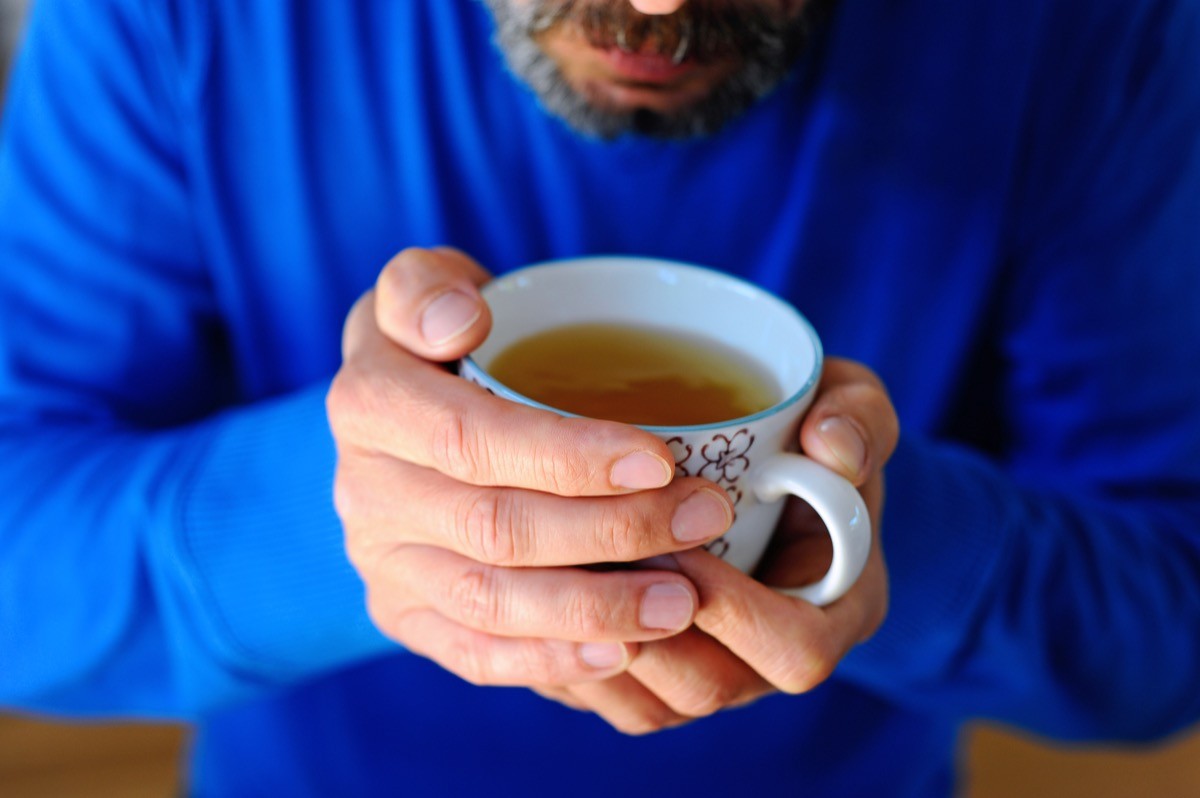Scientists Say This Beverage May Boost Weight Loss—If You Drink It Daily

What you eat—and don’t eat—can make a significant impact on how easy weight loss is. “Your weight-loss journey can be more enjoyable and effective by incorporating metabolism-boosting foods into your diet,” says Craig L. Floch, MD, via Nuvance Health. “Understanding how metabolism works and the factors that influence it can help you make informed decisions about your health.” Here is one beverage that can help encourage weight loss and fat-burning, according to experts.
RELATED: Safe and Proven Strategies For Weight Loss.
Green Tea For Weight Loss

Green tea has virtually no calories (barely 3 calories in 8 fluid ounces) and plenty of health benefits, making it an ideal daily drink for someone trying to lose weight. “Rich with antioxidants and metabolism-boosting compounds like catechins, green tea is a great choice to rev up your metabolism,” says Craig L. Floch, MD, via Nuvance Health. “Replacing high-calorie foods with lower calorie choices and cutting your portion sizes can help you cut calories and improve weight control,” says the Mayo Clinic. “For a successful — and lasting — weight management plan, you also need to increase your physical activity.”
Green Tea and Fat-Burning

Animal studies show green tea can encourage fat-burning, especially for those who exercise. “Our findings suggest that green tea in the absence of caffeine can enhance the effects of exercise,” Joshua Lambert, associate professor of food science, tells Penn State. “The mice that exercised and had decaffeinated green tea extract had a more significant change in body weight, and they had better outcomes as far as lower blood glucose and lower plasma insulin levels. It looks like a combination of exercise and decaffeinated green tea enhances the body’s ability to use energy that is taken in.”
Green Tea and Stress

Stress makes weight loss significantly more difficult, and studies show the L-theanine in green tea green tea can help lower stress. “Worrying and stress can raise blood pressure, affect mood and sleep, and negatively affect your quality of life,” Julia Zumpano, RD, tells the Cleveland Clinic.
RELATED: 10 Breakfast Foods for a Faster Metabolism.
Green Tea and Metabolism

The caffeine in green tea is linked to weight loss, experts say. “There have been quite a few studies that suggest higher blood concentrations of caffeine may be associated with a lower body mass index (BMI) and lower body fat mass,” Allegra Picano, RDN, tells Henry Ford Health. “One of the studies stated that a person who consumed twice as much caffeine as another had 22% more reduction in weight, 17% more reduction in BMI and 28% more reduction in body fat.”
Green Tea and Belly Fat

The catechins in green tea may help with weight loss, especially around the waist for women. One study from Korea found women who drank four cups of green tea a day had 44% lower abdominal fat. “I don’t recommend supplements for weight loss because they aren’t proven safe or effective,” Zumpano says. “However, drinking green tea is a healthy habit, because it’s low in calories — as long as you don’t overdo it with additives like sugar, sweetener, cream or milk.”